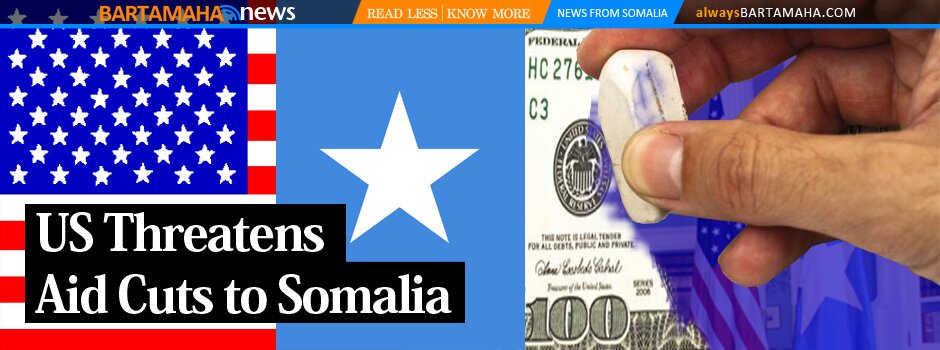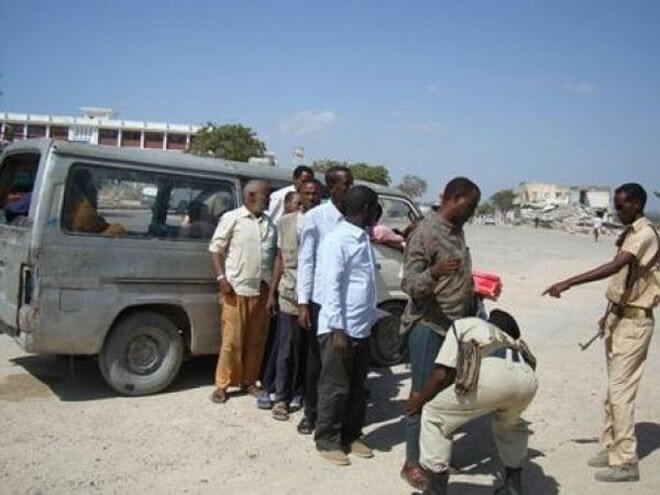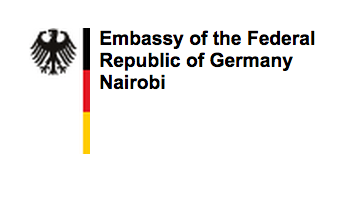 In a tiny, damp, oil-soaked cellar tucked behind one of Mogadishu’s bullet-pocked central streets, fragile remnants of a city’s survival clutter the rickety shelves. Their location, hidden just beneath Mogadishu’s shelled façade, is perhaps their only reason for survival.
In a tiny, damp, oil-soaked cellar tucked behind one of Mogadishu’s bullet-pocked central streets, fragile remnants of a city’s survival clutter the rickety shelves. Their location, hidden just beneath Mogadishu’s shelled façade, is perhaps their only reason for survival.
For 45 years, Daha Printing Press has accumulated an inked archive of Mogadishu’s intricate, vibrant and violent political and social history. As governments, dictators, warlords, and militias battled for control of the streets above, Daha operated like a well-oiled machine, printing for all who walked in their door. Everybody, it seems, has something to print.
“Even warlords needed to collect taxes,” Liban Egal, the son of Daha’s original owner, asserts.
Customs declaration forms for Mogadishu’s bustling port, still written in Italian from early post-colonial days, sit freshly pressed on the table; they are being repurposed for Somalia’s new government. Tax collection slips and Central Bank account ledgers from the military rule of Mohamed Siad Barre — whose ousting in 1991 launched two decades of civil war — litter the stock room. Business cards, like that of notorious warlord Mohamed Farrah Aidid, who was the target of a failed American assassination attempt (which in turn resulted the infamous ‘Black Hawk Down’ incident), fill old wooden drawers. Even United Nations Development Program reports from the 1980′s hide under crumbling shelves.
Originally opened in central Mogadishu in 1967, Daha Printing Press was founded by 25 year-old Abdi Egal Hassan. Hassan took skills he mastered studying printmaking in Germany through a scholarship, and built a thriving enterprise.
By 1969, General Mohamed Siad Barre staged a successful military coup and took control of Somalia. He experimented with Chinese-influenced ‘scientific socialism,’ and in 1971 all private sector workers became government employees. All large businesses became government businesses. Daha was shut down.
Barre eventually switched sides during the Cold War, aligning with the US. In 1983 Abdi was able to reopen Daha Printing Press. The small letterpress shop has remained unchanged in location, machinery and employees, ever since.
Liban Egal, Abdi Egal Hassan’s son, currently owns Daha. Liban, who grew up working the printing press after school, has recently returned to Mogadishu after spending more than twenty years abroad. In addition to resuming work at the press, he is founding the First Somali Bank — Somalia’s first since the collapse of the country’s Central Bank in 1991 — along with Somalia Wireless, a mobile internet company.
With Mogadishu quivering on the edge of sustained peace for the first time in two decades, Kasim and Liban are ready to welcome the arrival of Somalia’s first real government in as many years. On August 20th, the Federal Parliament of Somalia was inaugurated, and the Federal Government of Somalia, the first permanent central government since 1991, replaced the Transitional Federal Government. On September 16th, Hassan Sheik Mohamud, a political activist and academic, was sworn in as Somalia’s newest President.
“As soon as this new government begins, that’s when we begin,” exclaims Liban “Every Ministry will need some kind of paper.”
The old Heidelberg printing press, its slickly oiled gears churning beneath the shell-shocked streets, will also press on. “We can’t forget this machine,” Kasim expresses with a wide grin. “It’s like family.”
All photos are by the author.

Daha Printing Press first opened its doors to Mogadishu in 1967. Despite a brief period of nationalization during the ’70s, the shop has remained with its original owners, and printers, for over three generations.

Though security and stability may be slowly returning to the streets of Mogadishu, even at Daha, an armed guard is still a necessity.

Kasim Shiek Ahmed, 60 (left), and Liban Egal, 43 (right), and their families have been linked through the letterpress for nearly half a century. Kasim’s father was Daha’s first printer, and Liban’s father, Abdi Egal Hassan, founded Daha. The two play a game of Shax, similar to checkers, during down time at the shop.

After Somalia won its independence from Great Britain in 1960, many young Somali students were offered scholarships from European universities (Britain assumed control of the former Italian colony after World War II). One such student, Abdi Egal Hassan (left), just 19 at the time, earned a scholarship to studying printing in Germany in 1961. He graduated in 1963, and returned to Somalia to start Daha Printing Press, named after his first daughter.

A little-used stockroom is now a scattered archive littered with years of printed history; tax receipt books, business cards, customs forms, completed jobs forms and unpaid invoices. On the shelves areleftover national ID cards from the tumulous years of the Somali National Alliance, from 1992-2001.

The main room of Daha Printing Press, a sweltering cellar beneath the former “Las Vegas Bar,” where decades of ink and sweat have spilled on the dark concrete floor. A massive Heidelberg Original Cylinder press takes up most of the space.

German-made Heidelberg presses are often hailed as “the finest letterpress machines ever made.” Daha’s Heidelberg Original Cylinder was built sometime around the 1940′s, and fits Mogadishu perfectly. It’s a workhorse–cheap, reliable, and easy to maintain. Unlike newer lynotypes, it costs nearly same to print one sheet as it does 10,000.

In the printing hayday of the 1980′s Daha’s Heidelberg was operating around the clock. The business was lucrative. “It’s where our family made our money before the diaspora,” says Liban. The civil war occationally ground production to halt, but most days, the printing went on.In the printing hayday of the 1980′s Daha’s Heidelberg was operating around the clock. The business was lucrative. “It’s where our family made our money before the diaspora,” says Liban. The civil war occationally ground production to halt, but most days, the printing went on.

Kasim Sheik Ahmed, 60, oversees production of customs declaration forms for Mogadishu’s busy port. The same exact forms his father printed at Daha in the late 1960′s – in both Italian and English–are being repurposed for the new government.

Nicknamed “Tobleno” (cartoon, in Italian,) fitting for his wiry, humorous, and highly animated presence, Kasim has worked at Daha Printing Press for 45 years, except during the 11-year period of nationalization. He still works at Daha from 8 a.m. to 3 p.m., every day except Friday, and is always found wearing a traditional somali macawiis (sarong) and tank top-and typically with a cigarette dangling from his mouth.

Despite working a letterpress for almost his whole life, Kasim still cannot read or write. He relies on his current assistant, Ali Abdullhi, to lay the type.

Dozens of boxes of hard metal typfaces fill a wooden shelf near the printer. Each box has the typeface name, and font sizes, from 8 through 48.

Kasim moves swiftly around the machine. Like a dancer, he has style, a unique way of pushing, filling, cutting, pushing, rotating, and moving. He doesn’t speak any English, but acts in effective gestures, like sign language. I check his hands–not one cut, missing finger, or bruise.

Liban, who inherited Daha after his father died, leafs through a collection of old receipts. As a teenager, Liban worked in the shop with his father after school, and briefly ran it in the ’80s before moving to the US. When Liban visited in 1997, he found over $1 million in outstanding loans from the government, which had taken prints on loan but never paid. He quickly turned the shop around stating “No credit–for anyone!”

UNDP’s Somalia Annual Development Report from 1985. One notable excerpt: “Currently, the government is not placing a high priority on the development of tourism. There nevertheless exists a considerable potential to exploit the attractions of the extensive and wholly unspoilt coast.”

Receipts from the 1980s, before the Somali civil war. Some are written in Somali, others in Italian. The price, 6,650 Somali Shillings, is worth less than 25 cents today.

Business card of former Col. Axmed Cumar Jees. Throughout Somalia’s troubled recent history, Daha has remained an impartial and unbiased entity, printing for anyone who has attempted to control Mogadishu, legitimately or by force.

An original business card of General Mohamed Farrah Hassan Aidid, one of Mogadishu’s most notorious warlords and former Chairman of the Somali National Alliance. A failed attempt by US Army Rangers in 1993 to capture General Aidid resulted in the now famous ‘Black Hawk Down’ incident. He declared himself president of Somalia briefly, and died during a battle in 1996.

A paper printout of the Somali flag hangs on the wall. Despite dramatic shifts of power and control since the nation’s independence, the flag, much like Daha, has remained unchanged.
___
The Atlantic
Share this: La Qeybso Asxaabtaada
Comments
comments
 In a tiny, damp, oil-soaked cellar tucked behind one of Mogadishu’s bullet-pocked central streets, fragile remnants of a city’s survival clutter the rickety shelves. Their location, hidden just beneath Mogadishu’s shelled façade, is perhaps their only reason for survival.
In a tiny, damp, oil-soaked cellar tucked behind one of Mogadishu’s bullet-pocked central streets, fragile remnants of a city’s survival clutter the rickety shelves. Their location, hidden just beneath Mogadishu’s shelled façade, is perhaps their only reason for survival.


















 Calendar
Calendar






































